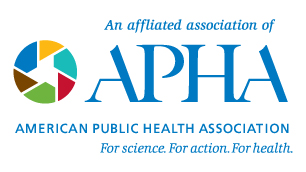2022 Oregon Legislative SummaryENDORSED LEGISLATION2022 Short Session Click on each bill to find more information below. HB 4052: Racism is a Public Health Crisis 2022 Fall Ballots Legislative Referral #401: The Hope Amendment HB 4052: Racism is a Public Health Crisis ✓ Passed in both chambers! OPHA convenes the Oregon Health Equity Task Force, which developed this bill and is leading its advocacy. Racism causes harm, trauma, illness, and death to Black, Indigenous, and People of Color (BIPOC) Oregonians. While HR 6, which Declared Racism a Public Health Crisis, passed during the 2021 legislative session we must take strategic actions to support this declaration. LC 238, like HR 6, acknowledges that Oregon’s very founding as a state was rooted in racist ideals, and while the Black exclusionary laws are no longer on the books, the damaging impact of these and other racist policies continue to exist within our present-day policies and systems perpetuating health disparities. LC 238 calls for accelerated, intentional actions to heal these injustices and articulates strategies and investments to address health inequities. Initial strategies to address this crisis: Remove barriers to increase access and quality of care in BIPOC communities. A pilot mobile health program will create a sustainable, culturally responsive model to increase access to care, informing a collaboratively-developed statewide feasibility study. Meaningfully invest in community engagement to identify future strategies. Ensure BIPOC community voice informs and directs institutional racism and healthy equity strategies. Racial affinity groups will be part of the Oregon Advocacy Commissions. Develop recommendations to fund culturally specific programs. Establish a funding strategy to support intervention programs designed to prevent health conditions that result in inequitable outcomes for BIPOC communities. To stay up-to-date, follow Declare Racism a Public Health Crisis in Oregon on Facebook. HBB 4058 & SB 1536: Emergency Heat Relief ✓ HB 4058, did not move forward but merged with SB 1536 which passed! In the Summer of 2021, Oregon experienced a record heat wave, the second worst natural disaster in our state's recorded history. Many people were made more vulnerable because they did not have access to life-saving, cooling technologies like air conditioning and heat pumps. To help protect more families we must remove barriers to installing these appliances and incentivize the most efficient and effective devices. HB 4058 will ensure:
SB 1536 will ensure:
View Heat Relief Bill Info Sheet SB 1568: Compassionate Medical Release ✖ Died in committee There is a public hearing scheduled for February 8, 8AM. Find details and where to register or submit written testimony here. Oregon’s compassionate release laws, ORS 144.122 and ORS 144.126, recognize that it is in the best interest of our communities for incarcerated Oregonians to be released when, due to medical conditions, their continued incarceration is inhumane and no longer furthers the purposes of imprisonment. The Problem
The Solution Important Features
HCR 203: Protecting Oregon Workers From Climate Hazards ✖ Died in committee Oregon is becoming increasingly more vulnerable to climate disasters such as wildfires, ice storms, and extreme heat. Oregon workers are increasingly at risk of illness and death on the job. Now is the time to mitigate these climate-related impacts for all Oregon workers working outside in the elements, or in non-temperature controlled environments. This past summer, extreme heat during the heat dome killed at least three workers, including a migrant farmworker named Sebastian Francisco Perez, who died alone while laying irrigation pipes at a farm in St. Paul. Heat exhaustion also increased the risk of injury and death for countless other workers working in warehouses, restaurants, construction sites, and agricultural sites. While Oregon OSHA is in the process of finalizing new statewide standards to protect workers from excessive heat and wildfire smoke, the agency does not have jurisdiction over work stoppages- even in climate extremities threatening to life. Additional further protections are needed to protect the lives and livelihoods of workers in Oregon from ever-worsening climate impacts and situations where workplace rules fall short. Frontline workers are disproportionately from low-income and/or immigrant communities. They are usually impacted by the elements on the job, most vulnerable in their workplace for injuries, death, and retaliation and already suffer more health issues like asthma. HCR 203:
HB 4013: Homeless Youth Services Expansion & Homelessness Prevention ✓ Passed in both chambers! This bill will provide the following:
BIPOC and LGBTQIA2S+ youth disproportionately experience houselessness. Tracking indicators such as school attendance, graduation rates, higher education enrollment, and related indicators through these lenses should show that this concept effectively serves these communities and helps to reduce not just youth houselessness in general, but targets those groups most impacted. HB 4005: Child Care For Oregon ✓ Passed in both chambers! This concept is a package of strategic investments to not just stabilize but to begin expanding the child care and early learning workforce and infrastructure, better prepare for likely massive federal investments in the near future, and continue supporting the implementation of HB 3073 (2021). This LC would increase provider reimbursement rates for ERDC, create a wage enhancement program for childcare workers and new grant program to help new childcare programs come online, and provides protection for providers who rent the homes where they provide care. This package will have direct positive economic impacts on the majority women, and disproportionately women of color, who work in the child care industry. Would also be positive impacts for low-income families trying to access child care by protecting and increasing child care capacity across the state. Legislative Referral #401: The Hope Amendment The Hope Amendment proposes an amendment to the Oregon Constitution establishing a state obligation to ensure every Oregon resident has access to cost-effective, clinically appropriate, and affordable health care. Find more information here. Questions? Contact OPHA Executive Director, Jessica Nischik-Long. |

